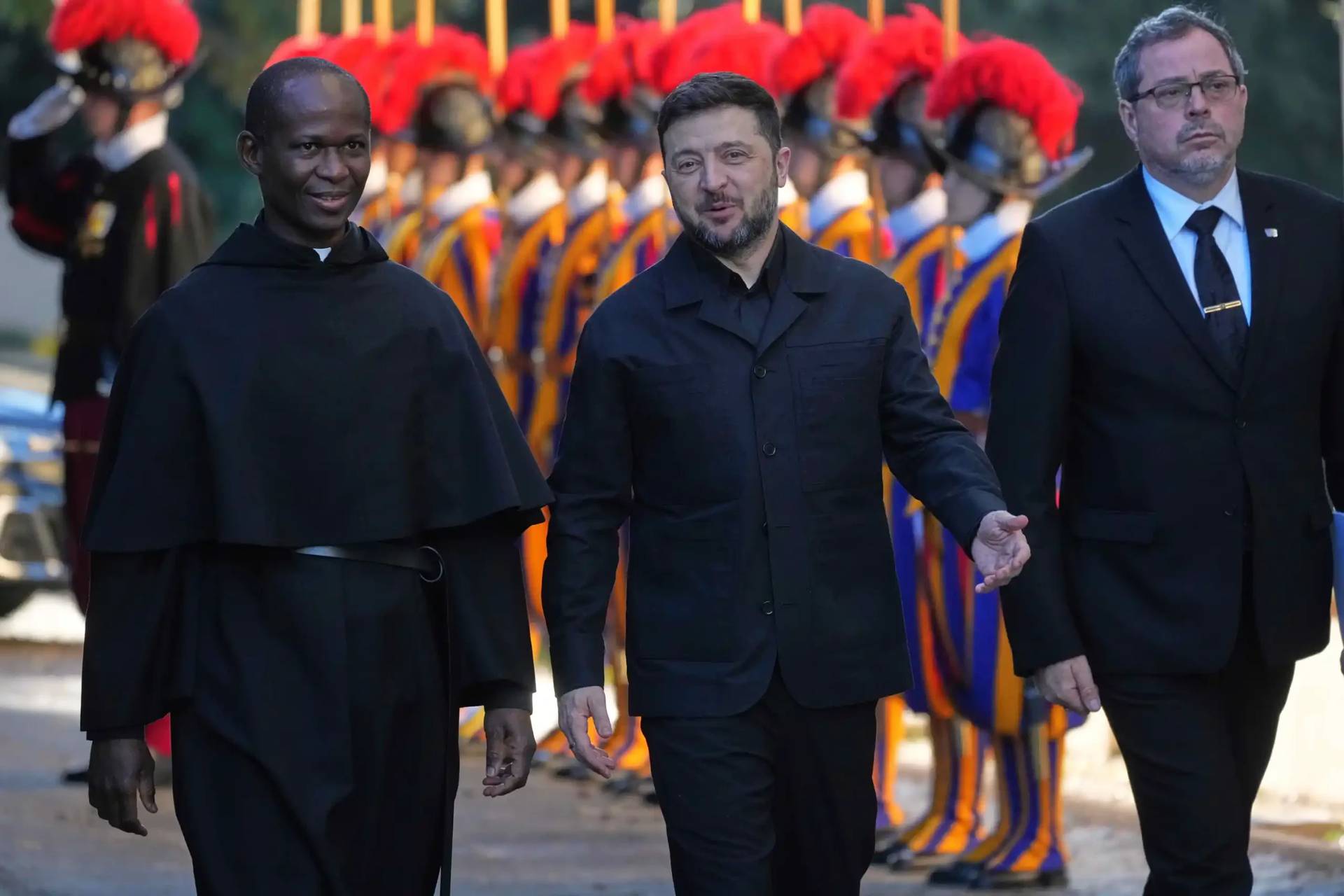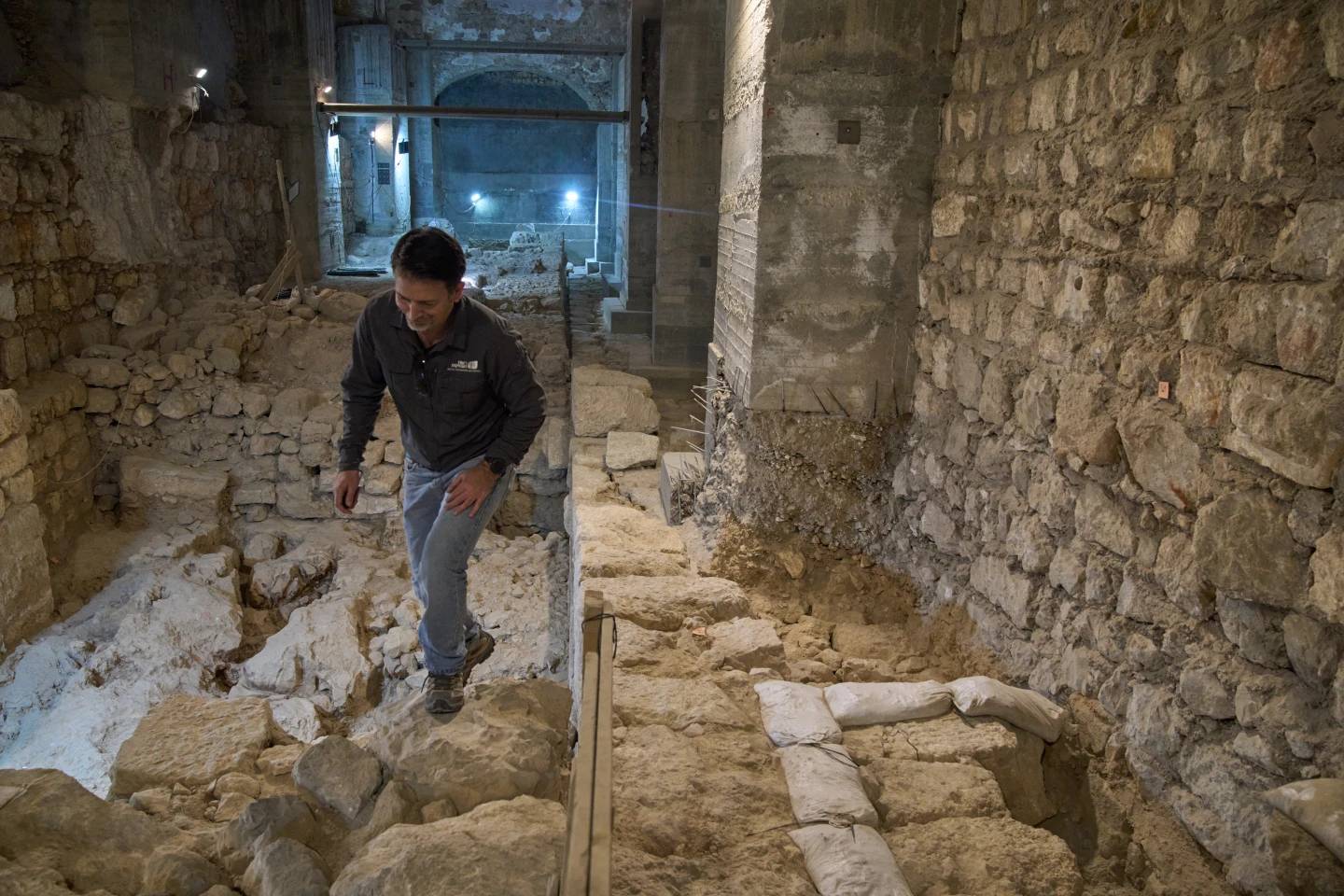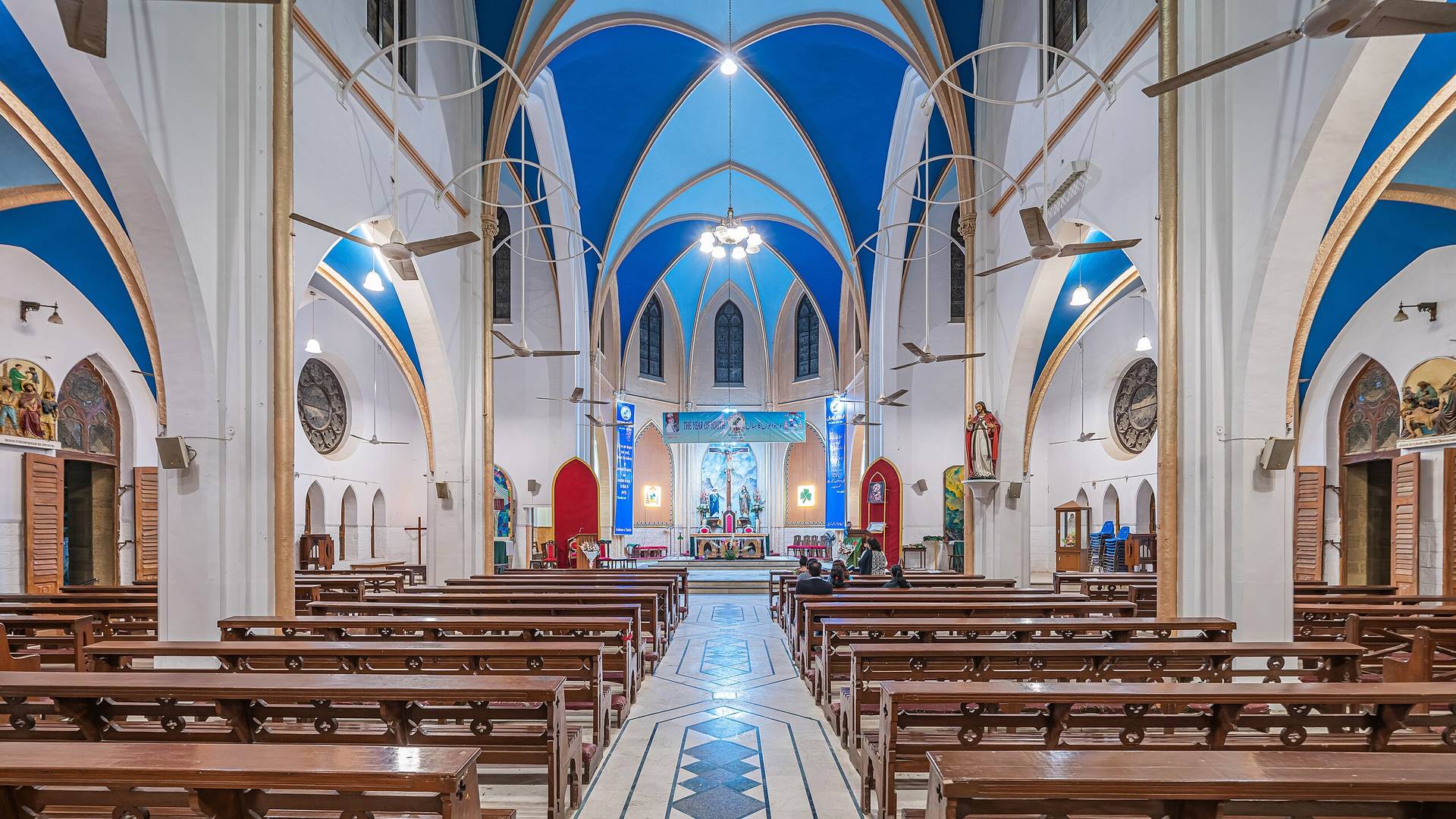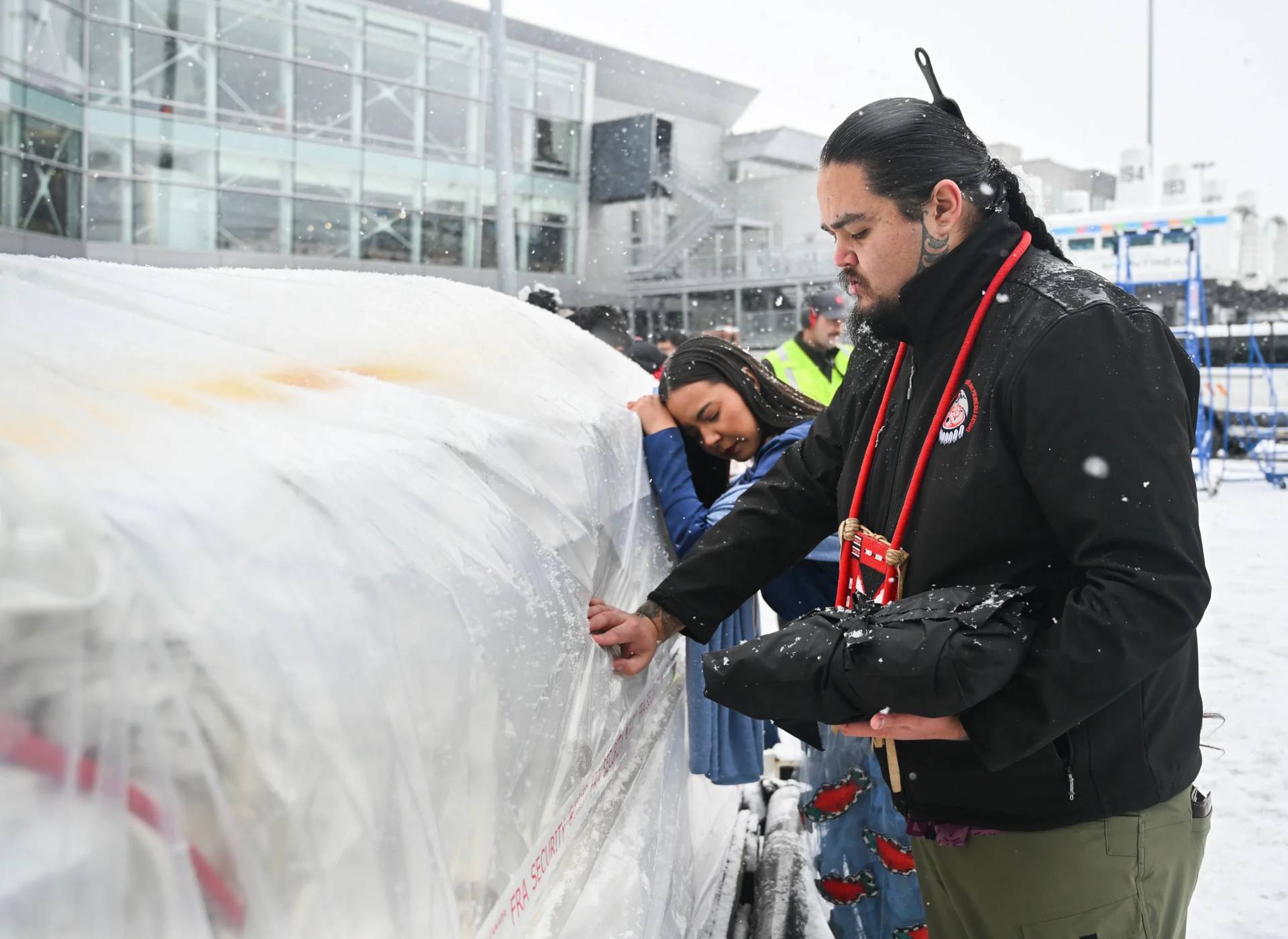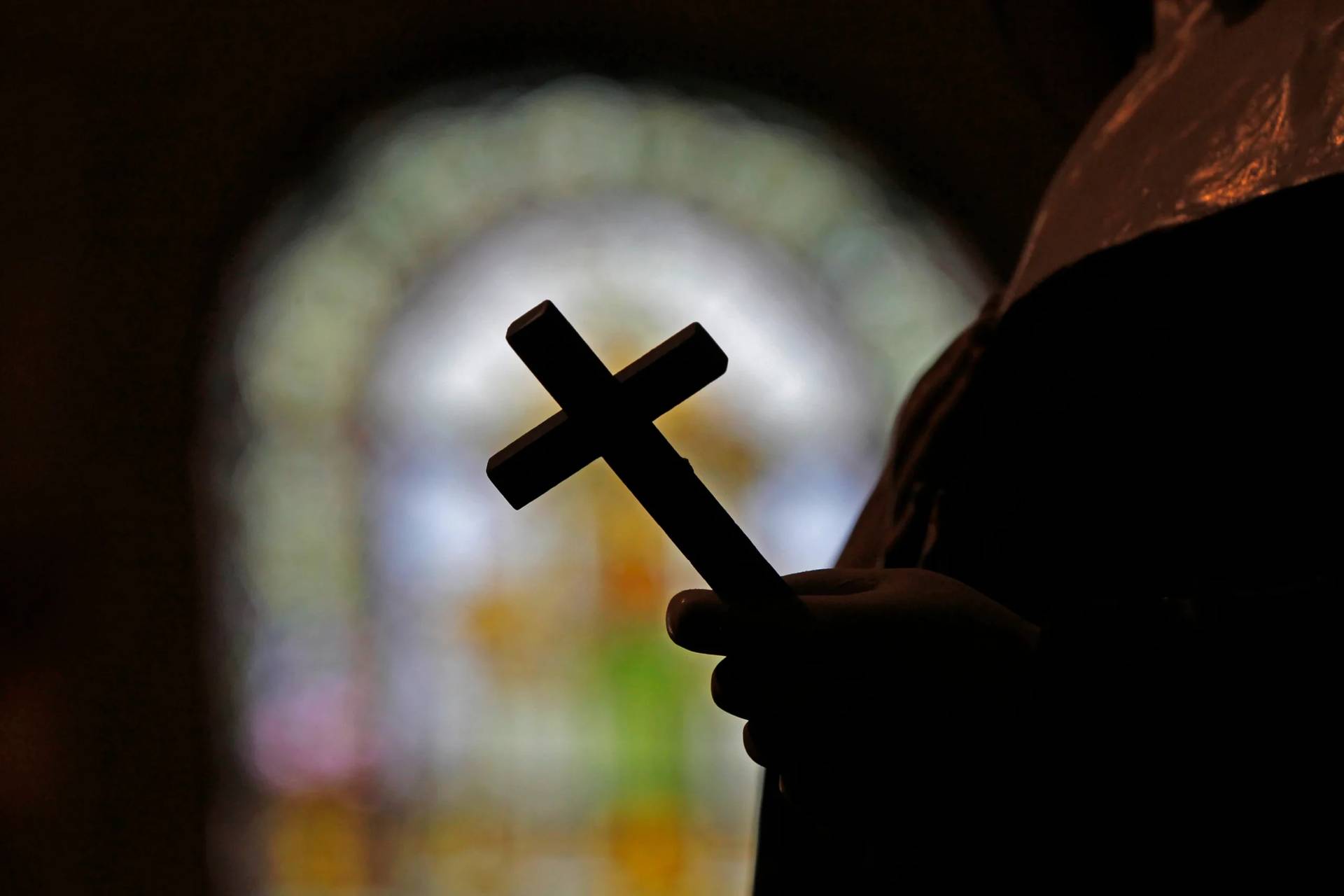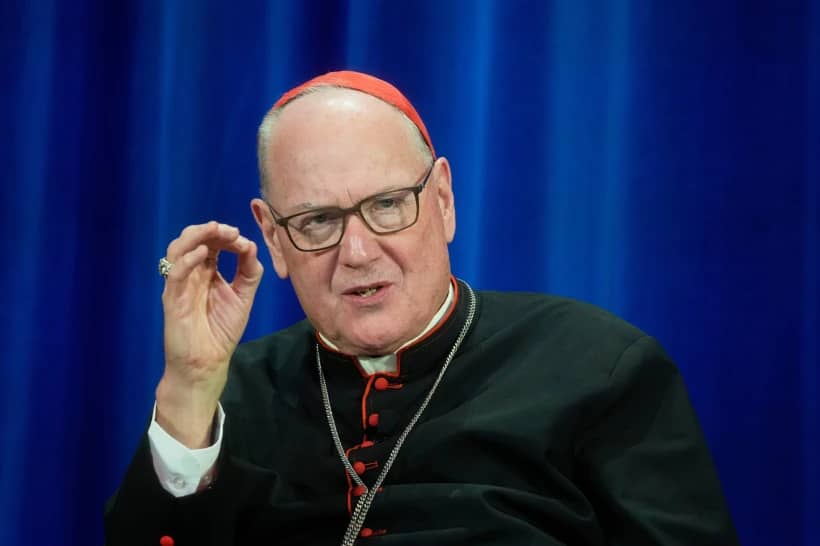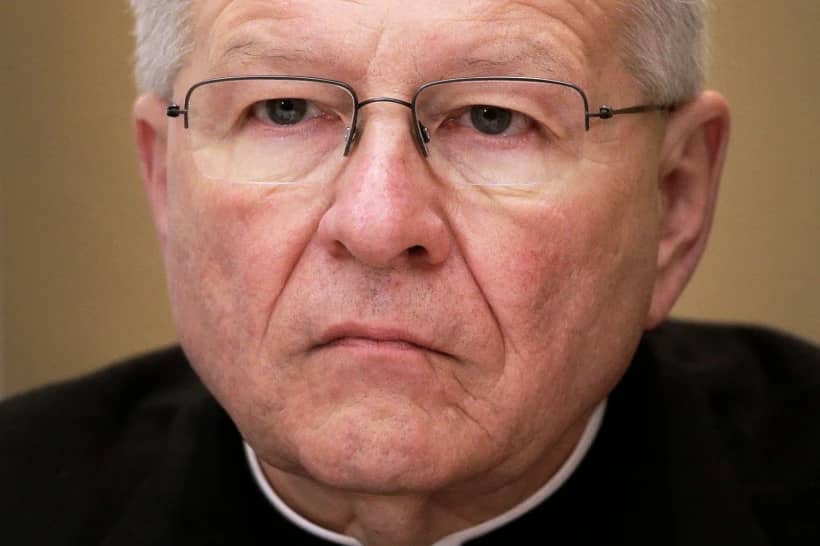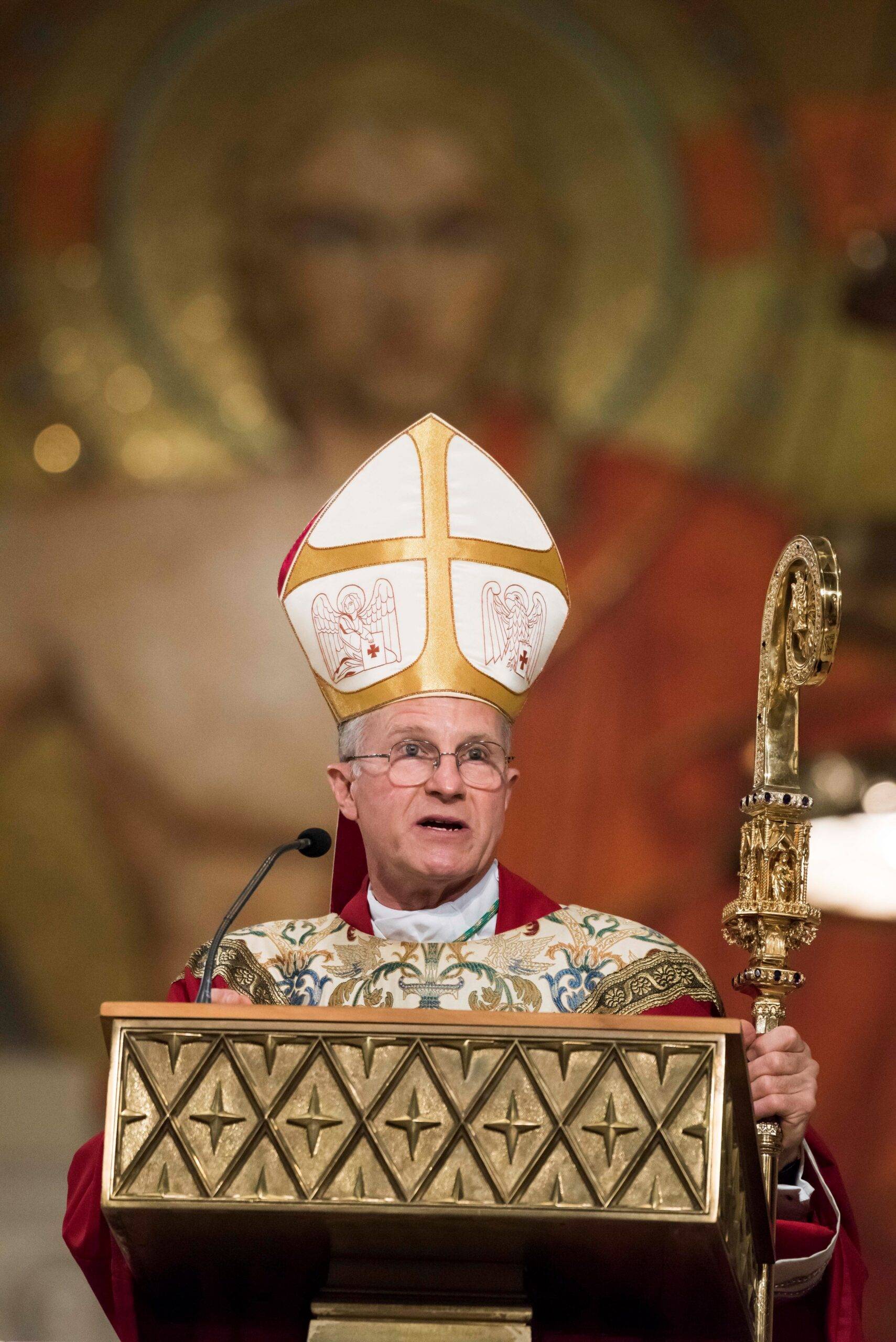For Washington Post reporter Bob Costa, the biggest takeaway from Donald Trump’s surprising victory over Hillary Clinton in the presidential election came on the last 10 days of the campaign, as the journalist traveled hundreds of miles through rural Pennsylvania and Wisconsin.
Trump’s road to the White House wound through those depressed areas, he said.
“The people I met who were for Trump felt unprotected in this country,” Costa said during a Nov. 10 panel discussion at Georgetown University in Washington.
The journalist said there is a visceral and real divide between those who are secure in the global economy, and the struggling working class people he met who feel left behind.
The panel on “Election 2016: What Happened, Why, and What Does it Mean,” was held two days after Election Day and featured two reporters and two columnists who covered the campaign and analyzed the result of what one of the event’s co-sponsors described as “probably the most shocking election of our lifetime.”
Mo Elleithee, the executive director of the Institute of Politics and Public Service at Georgetown, welcomed the more than 400 college students, faculty and community members who packed the auditorium, and noted that he had spent years working on campaigns.
“Everything I thought I knew about politics, everything I thought I knew about elections, was just thrown out the window,” he said. “We just had an election that was not about left versus right. It was about something else. There was a fundamental realignment of our entire political system.”
The director of the other group co-sponsoring the event – John Carr of the Initiative on Catholic Social Thought and Public Life at Georgetown – noted “another surprising election (almost) four years ago, when a Jesuit from Argentina was elected Pope Francis. For that, the only exit poll was a puff of white smoke.”
But it was the unexpected election of Trump that took center stage at the discussion.
“There is an elite world entirely disconnected from what was going on in the public,” said Michael Gerson, a Washington Post columnist who earlier served as a top aide in George W. Bush’s administration. Nearly all of the polls, pundits and political insiders got it wrong in this election, he said.
Gerson said that “the Democratic coalition did not show up for Hillary Clinton on Election Day,” and she got 6-7 million fewer votes than Barack Obama did four years earlier. He noted factors like an anti-establishment wave among voters, and the impact of the FBI resuming its investigation of Clinton’s emails in the campaign’s last two weeks.
But he expressed concern that Trump drew white voters not only because of their economic woes, but also because of a “disturbing backlash against multiculturalism… It’s been a hostile takeover of the Republican party by a populist movement… a conflict not of ideology, but of class” that he worries could be very destructive.
E.J. Dionne, another Washington Post columnist, echoed that concern.
“This election shows the country is probably as divided as we’ve ever been since the 1850s,” Dionne said, referring to the tumultuous years just before the Civil War. “It’s alarming to me, because of what it says about divisions in our country.”
Voting patterns in the 2016 presidential race showed stark differences among voters by gender and race, with significant majorities of women, Hispanics and African-Americans voting for Clinton and most men, white voters and those lacking college degrees casting their ballots for Trump.
“We’re reminded that the white working class cannot be forgotten,” Dionne said, noting the irony that the party of Franklin Delano Roosevelt did not appeal to most of those voters this election.
With the nation’s Latino population steadily increasing, elections in coming years probably will not turn on winning most of the white vote, he said, but he pointed out that poor working class white people in rural areas and struggling African Americans in cities face similar economic challenges.
Elizabeth Dias, Time magazine’s religion correspondent, noted that Trump initially garnered support of Pentecostals, including televangelist preachers, and then most mainstream evangelicals came on board in the summer after their favored candidates dropped out of the race.
Trump, who captured 52 percent of the Catholic vote, received 81 percent of the votes of white evangelicals according to exit polls. About 70 percent of evangelicals in one poll said that their vote for Trump came down to issues and policies, rather than his moral values, which to Dias seemed to be ironic support for a thrice-married man who had been a playboy and who is known for not seeking forgiveness.
Dias said she wondered “how much this vote was about religion,” a point also raised by Dionne. “I think what you saw here was a movement from religion to tribe,” he said. “…I worry we’re not voting out of values, but out of a kind of tribal commitment.”
Dionne is known for saying, “There is no Catholic vote, and it’s important.” He noted that Catholic voters traditionally are not monolithic, with 40 percent going for each party, and the votes of the remaining 20 percent up for grabs. But he said he worries that Catholics and other voters of faith, “instead of being leaven in society,” vote like everyone else.
Costa noted some Catholic voters were probably drawn to Trump by his strong statements opposing abortion, such as in the last debate, and his pledge to appoint Supreme Court justices like the late Associate Justice Antonin Scalia, whose rulings opposed abortion on constitutional grounds.
The political reporter said that as he followed the Trump campaign, he encountered “so many religious voters, especially evangelical Christians, who feel like outsiders in America because of their faith. They also see the state as a threat to them and their church.”
Those voters, he said, saw Trump as a disruptive force against the media and a Hollywood culture that strongly backed policies such as same-sex marriage that ran counter to their religious beliefs.
Dias said the Democratic party “did not do the same kind of religious outreach” as the Republican party did in this election.
Gerson expressed concern that some religious groups seem to resemble political operatives rather than being prophets in the public square. He also said he worries that Christian conservatives often focus too much on protecting their own rights and institutions, such as in the case of religious liberty – which he said should be defended for Christians and Muslims alike.
“If you believe in religious liberty, it’s religious liberty for everybody,” he said.
The doctrine of human dignity that spurred Christian efforts on behalf of the abolition of slavery, in support of civil rights and against human trafficking should be central to people of faith, Gerson said, and should be a focal point for both parties. “Everyone matters. Everyone counts.”
The columnist said one aspect of the presidential campaign that he found to be especially troubling, “is the return of nativism to American public life… This is a president who won office by encouraging fear of the other.”
Costa said that based on following the Trump campaign this past year, he is convinced, “The president-elect is going to build the wall” at the United States’ border with Mexico.
During the discussion, Carr – noting the recent Supreme Court battle over Catholic and other faith groups being forced under Obamacare to fund abortion and contraceptive coverage in their health care plans – pointed to a different challenge faced by American Catholics in the months ahead. “Will we stand up for immigrants and refugees as strongly as we stood up for the Little Sisters?” he said.
Dias said it’s interesting to reflect on what role social media may have played in the seismic shift in this year’s election results, while Dionne said that the mass media should do some soul searching about its role in Trump’s rise after providing him with months of expansive coverage.
Responding to a question at the end of the discussion about a seemingly partisan statement in a parish bulletin, Carr said, “I frankly saw much less clerical activism around single issue voting in this election than in past elections.”
Dionne said he wished that the nation’s bishops had been more vocal in reacting to Trump’s controversial statements during the campaign about women, Latinos and Muslims.
Noting Trump’s campaign slogan that the candidate wore on his ballcap – “Let’s Make America Great Again,” Dionne mused during a speech earlier this year that he wished he had a cap reading, “Let’s Make America Empathetic Again,” and later someone had those words put on a cap and sent it to him to wear.
The columnist said he found Trump’s seeming lack of empathy very troubling on the campaign trail, and he also said he is disheartened by seeing Catholic parishes sometimes mirroring the same divisions in our society.
The importance of recognizing the hidden struggles of people like the working poor in America offer a lesson not only for candidates and parties, but also for the Catholic Church, Dionne said. “The Church would do a lot of good to call us to this kind of empathy,” he said.






